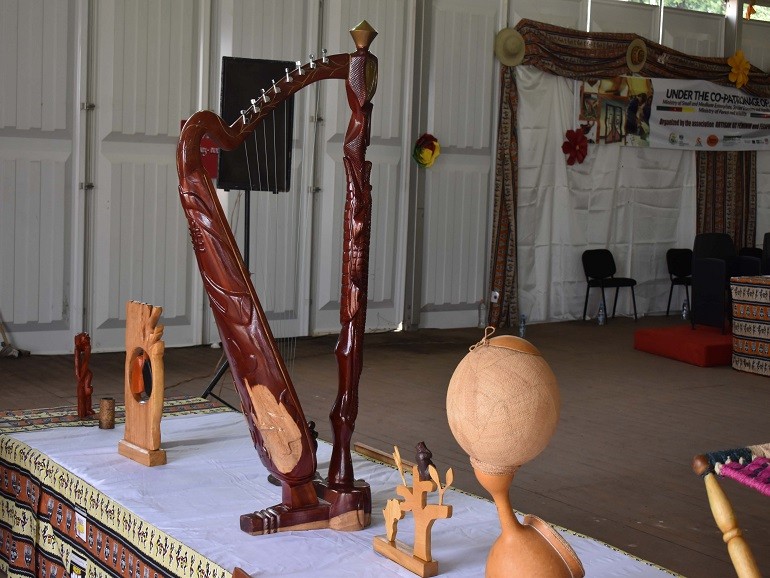

22.07.2021
The ADEFAC project, through its communication and vocational support component, and with a view to increase the visibility of the place of women in the forestry sector, was involved in the organization of the furniture fair in Yaoundé on the theme "Women in the wood industry".

The 4th edition of the international furniture fair "Salon du mobilier made in Cameroon" was officially launched on June 30, 2021 by the Minister of Small and Medium Enterprises, Social Economy and Handicrafts (MINPMEESA) Mr. Achille BASSILEKIN III at the Palace of Congress at the Yaoundé Conference Hall.
Organized by the association Artisan au Féminin in collaboration with FECAPROBOIS, the fair was about the promotion of wood of legal origin and non-timber forest products ′′Made in Cameroon", with exhibition stands and exchanges on various themes. It was with a view to highlight the potential of the sector for the structuring of SMEs and make a plea for a suitable taxation for a better structuring and market dynamics.
In his speech, the Minister underlined that the exhibition will not only reveal the creativity of women, but will also respond to the challenges they face on the field. The Minister then visited the stands with Ms. Helene MAPOKO, President of "Artisan au Féminin" and Mr. Pamphile TANGA, Secretary General of FECAPROBOIS, to appreciate the works of women and men carpenters and sculptors.
On July 1, 2021, the debate on the theme "Women in the wood industry" was attended by 3 women from the forestry-wood sector:
In her presentation, Geneviève mentioned the difficulties encountered by women and suggested solutions:
Marie and Sandrine each share their experiences. It is thanks to a friend that Marie became interested in this profession, and today she carves tools and in particular a musical instrument : the harp. Sandrine, who trained in her father's family business and then abroad, has become a carpentry manager thanks to the quality of her work. She is currently working with her husband in the manufacture of furniture in Yaoundé.
The main difficulties mentioned by the two young women are related to the retrograde perception of the role of women, which is often reduced to household tasks. They encouraged women to have self-control, to be determined and to train to succeed in this sector. They wished that women artisans be valued for expressing their know-how, and that they have access to support for training and setting up their own business.
The participants essentially underlined that the various difficulties mentioned were also realities experienced by men, that women should be encouraged to take risks, and that this kind of exhibition on the place of women in the forestry sector should be decentralized at the local level in order to reach all the targets and especially the young people in schools and high schools.